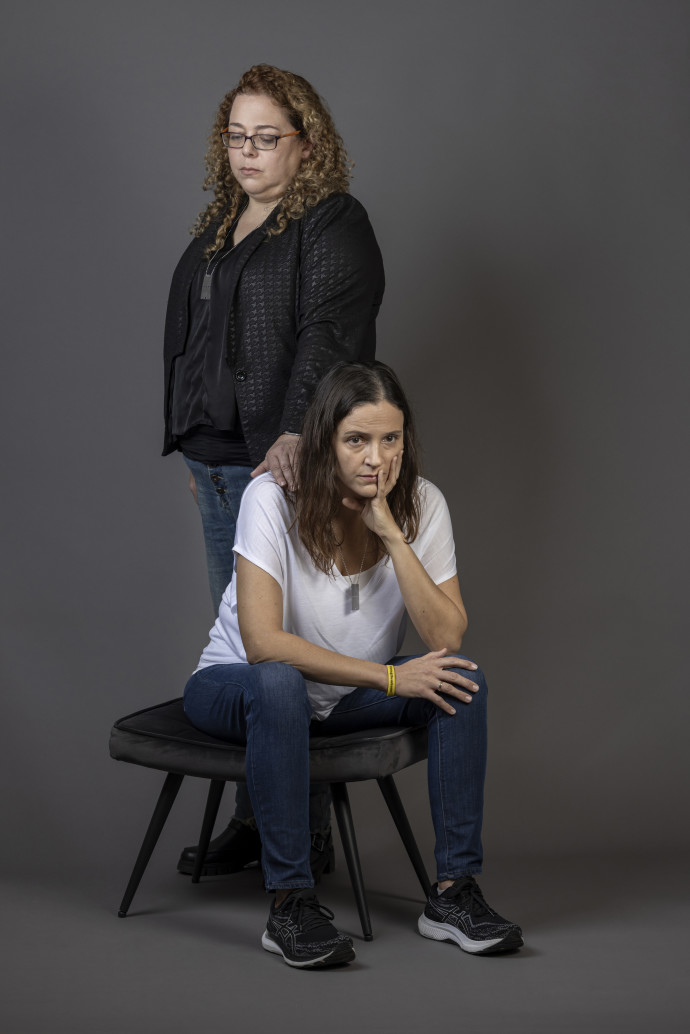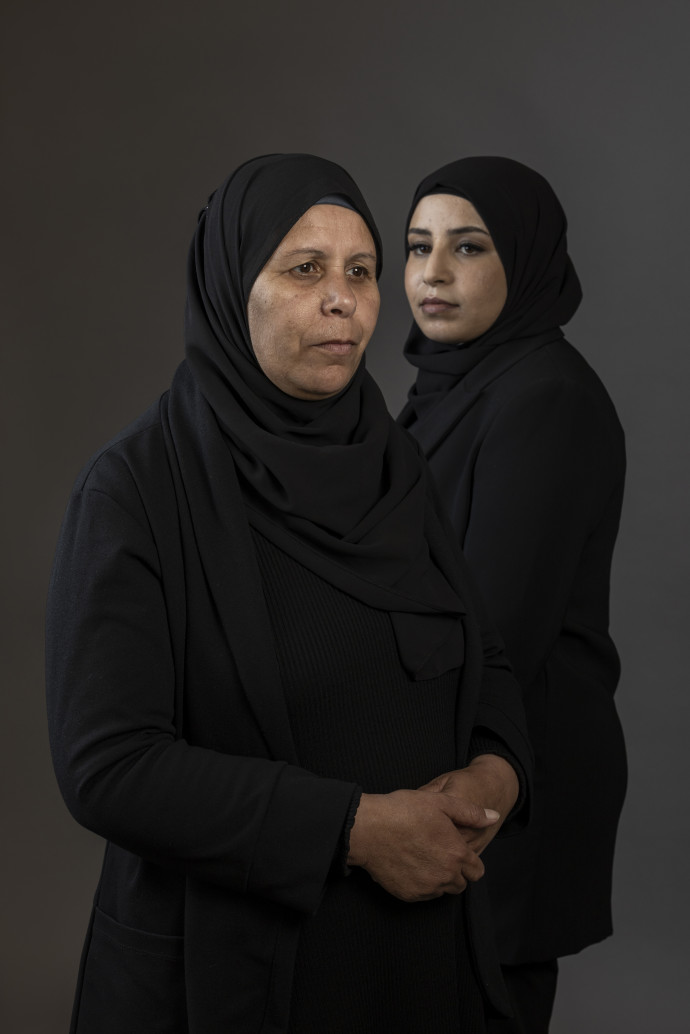‘Terror is the longest war without a name for the people of Israel,” says Ayelet Nahmias-Verbin, Chairperson of The Jewish Agency’s Fund for Victims of Terror. Since its creation in 2002, the Fund, which is funded primarily by The Jewish Agency’s two major partners, the Jewish Federations of North America and Keren Hayesod, has assisted thousands of families of civilians who have been killed, wounded, or suffered trauma in terror attacks by providing emergency grants of NIS 4,000 within 48 hours of an attack, followed by a grant of NIS 25,000 for long-term rehabilitative care over three years. Terror victims often require additional therapy and rehabilitation – both physical and mental – that goes beyond the amounts covered by the government, and the extra amount provided by the Fund enables them to extend and improve their treatment.
In addition, the Fund provides respite camps for children for twenty-one days each year during Pesach, Hanukkah, and summer vacation. These camps are designed for youngsters suffering from PTSD (post-traumatic stress disorder) as a result of terror attacks.
On October 7, when Hamas terrorists attacked southern Israel, the three-person team of the Fund was overwhelmed by the vast number of victims who needed to receive assistance. Since the beginning of the war, the Fund has provided grants to 8,000 families, almost equivalent to the total number of grants that the Fund had provided in the 21 years until that date. By the evening of October 7, the staff decided to minimize the bureaucratic obstacles to ensure that the victims’ families received assistance promptly.
The will of the people to rise from the ashes is nothing short of incredible
Mark Wilf, chairman of The Jewish Agency Board of Governors, noted that, “the women of The Jewish Agency’s Fund for Victims of Terror have shown tremendous fortitude and caring professionalism in conducting their overwhelming task these past months. Their tireless dedication is awe-inspiring and has brought solace, in the name of all the Jewish people, to October 7 victims.”
The staff of the Fund for Victims of Terror has increased from three to seventeen to handle the pressing needs, which have grown since October 7. The Fund distributed grants immediately to the families of those killed at the Nova music festival and to the families in the kibbutzim in Israel’s south that suffered devastating damage. “The challenge was to be there for them as quickly as possible,” says Nachmias-Verbin. “Of course, that included the families of the hostages, which was a type of terror attack that we have never before experienced.” In addition, the organization will begin distributing grants to some 3,000 families out of the expected 10,000 for the three-year rehabilitation package in the coming two months. Staff members at the Fund expect that the number of people who will receive grants since the beginning of the war will continue to increase over time as more people will be recognized as victims of terror due to the physical and psychological disabilities caused by the attacks and evacuation of communities.
One of the hallmarks of the assistance provided by the Fund is the close relationship that is engendered between those who provide the help and the recipients. “The important thing to understand about the fund,” says Nachmias-Verbin, “is that we work very personally with the victims. Even when you finish your three years in the Fund and use up your eligibility for the rehabilitation resources, my team and my staff are following up on these families, and we know what’s going on with them. In that respect, that makes us very unique, especially considering the fact that the children are eligible for the camps even after the three years are up.”
Behind the statistics – the number of people killed, kidnapped, and bereaved – are the people and their stories. A number of officials at the Jewish Agency and the Fund for Victims of Terror are themselves connected to the tragic events. Here are the stories, in brief, of several:

Dalia Cusnir:
Programs Director at the Jewish Agency. Her brothers-in-law, Eitan and Yair Horan, are being held captive in Gaza by Hamas.
Yael Raz:
Director of the Fund for Victims of Terror and Director of the Resilience and Emergency Department at the Jewish Agency
Cusnir is a Jewish Agency employee who worked with Yael Raz, the longtime Director of the Fund for Victims of Terror. On the terrible Shabbat of October 7, Dalia’s life was put on hold when her brothers-in-law, Eitan and Yair, were kidnapped. Since then, she has been doing everything possible to secure their return. Following October 7, Yael immediately contacted Dalia, wanting to help her through this difficult time. More than a decade ago, Yael was part of the struggle to free Gilad Shalit, so she knows how Dalia feels. Now, she must do the same again.
Vered Libstein:
Survivor of the massacre at Kibbutz Kfar Aza
Ayelet Nahmias-Verbin:
Chairperson of The Jewish Agency’s Fund for Victims of Terror
On October 7, Vered Libstein lost those who were closest to her – her mother Bilhah, her son Nitzan, her niece Neta, and her husband Ofir Libstein, who was head of the Sha’ar HaNegev Regional Council. Ofir was killed defending his kibbutz, Kfar Aza. Ofir saw Jewish communities as vital partners in building the country and was a close ally of the Fund for Terror Victims and The Jewish Agency. Ayelet, who serves as Chair of the Fund, was a close friend of Ofir. Immediately following the attacks, Vered and Ayelet met and hugged tightly. They promised to carry on the spirit of Ofir and Nitzan and launched a scholarship to support teens dealing with trauma following October 7.

Shirihan Alkalili:
Coordinator for Arabic-speaking Victims of Terror
Leila Talalka:
Mother of Samer al-Talalka
Samer was kidnapped and taken to Gaza and accidentally killed by IDF fire, together with the hostages Alon Shamriz and Yotam Haim
The events of October 7 impacted Leila twice: First, when her son Samer was kidnapped to Gaza, and the second time, when he was mistakenly killed by IDF fire 70 days later. Two years ago, Alkalili joined the Fund for Victims of Terror and became a pillar of support for the Arabic-speaking population and terror victims in general. With sensitivity and love, Alkalili is helping Leila and her family cope with the loss that upended their lives and was mourned by the entire State of Israel. With her deep knowledge of the Bedouin community, Shirihan is supporting Leila and her family in their mourning and ensuring they never feel alone.
Nahmias-Verbin expresses her pride in Alkalili’s work on behalf of the Bedouin community, both before October 7 and since that date. “After October 7, we had many families from the Bedouin and Arab communities that we needed to support,” she says. “It was incredible to see what Shirihan has been able to do with these families.” The Fund is working with Araoctb municipalities to observe and follow up on families and their needs.
The Fund supports all individuals who have been affected by terror attacks in Israel, including foreign workers and tourists, in addition to Israeli citizens.
One of the hallmarks of the Fund is the close relationship between those who provide the help and the recipients.
While she is hard-pressed to find a silver lining amid the cloud of the tragic events of October 7 and its aftermath, Nahmias-Verbin says she is moved to see the commitment from the Jewish communities around the world to the victims and to the Fund. “It reaffirms the incredible connection between Israel and the Jewish communities worldwide. I have spoken to communities around the world almost every day since October 7. It is so important for them to support the Fund and to support the victims of terror. I think that’s one of the things that makes them feel very connected in the Fund. It is direct contact. Their support makes a difference.”
The Fund for Victims of Terror is working closely with all organizations on the ground and is attempting to identify and solve challenges that have emerged since the war began, including a dearth of mental health professionals available to treat post-trauma.
Nahmias-Verbin says that while many challenges lay ahead, she is confident that Israelis have a strong will to live and survive. “This is a biblical scale event that we are going through, and the will of the people to rise from the ashes is nothing short of incredible. We know that the challenges are going to be endless, but we will have to find solutions. With the support of the Jewish communities around the world and with our incredible team, I think we will be able to do so much for the victims of terror.”
The photos accompanying this article are part of an exhibit, Sisterhood: Women Healing the Fractures of War, showcasing the relationships between women of The Jewish agency’s Fund for Victims of Terror and the women they helped during the war. The exhibit, featuring photos by avishag Shaar-Yashuv, is on display at the zOa House in Tel aviv through april and can be viewed online at www.yadachot.org/en
This article was written in cooperation with The Jewish Agency.
